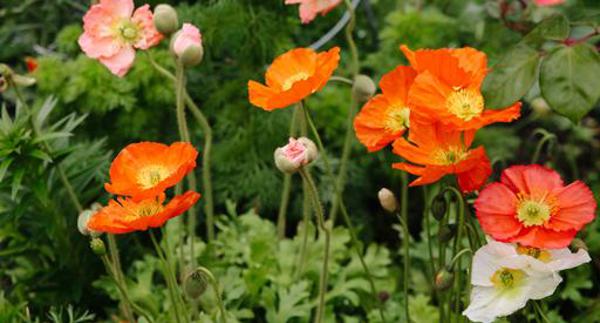
Gardens are ecosystems home to a range of insects, many of which are beneficial to your garden’s health such as bees, butterflies and praying mantis. When it comes to avoiding unwanted insect pests or disease prevention is the best cure. A healthy garden is less likely to be plagued by insect pests and diseases.
Shopping list
Tips to keep your garden healthy
- Feeding - replenish nutrients used by plants during the growing season. Keep adding organic matter like sheep pellets and compost to your soil, and feed your plants with a general fertiliser or one specially blended for your plant or crop. Apply Tui Organic Seaweed Plant Tonic at least once a month to help keep your garden healthy and strengthen against insects and disease.
- Watering - keep your garden well watered. Regular deep soakings are better than shallow watering. Water early in the day or later in the evening, taking care to water the soil not the foliage where possible, to limit encouraging disease.
- Companion planting - grouping certain plants together in the garden will help them grow better and help deter insect pests from ruining your plants before you get the chance to enjoy them! Check out our Compantion Planting Guide here.
- Sacrificial plants - these are plants that you plant in your garden to attract pests away from the veges you are growing. A good example is nasturtium - if you grow them in the vege patch they will attract pests like caterpillars, aphids and whitefly which will lay their eggs and feed on the nasturtium leaves instead of your veges.
- Encouraging good bugs - there are many beneficial insects to encourage into your garden. In addition to bees, butterflies and praying mantis, the Steelblue Ladybird is also commonly found in gardens and will eat scale. Encourage bees into your backyard by planting bee friendly flowers like calendula, marigolds, sunflowers, poppies, cosmos, lavender, fox gloves, clover, nasturtiums, and Queen Anne’s Lace.
- Remove diseased plant material - burn or bin any diseased plant material – don’t compost to avoid spreading disease.
Common garden problems
1. Scale
Scale are small dome shaped sap sucking insects that can be brown, black, grey, or white. They cause leaves to turn yellow, and honey dew is excreted, causing black sooty mould. Scale insects commonly affect citrus.
Solve it:
- If insect pest infestations are small, try blasting with a hose or scraping off with your fingernail.
- For larger infestations sprays are available from your local garden centre.
2. Powdery Mildew
A disease in which infected leaves become covered in white powder and can become distorted and discoloured. Powdery mildew commonly affects cucumber and zucchini over summer.
Solve it:
- Powdery mildew is spread by droplets of water, so take care to water the soil rather than the foliage to avoid spreading it. Remove any diseased leaves and bin or burn – don’t compost as this will spread the disease.
3. White cabbage butterfly caterpillar
These are small, green worm-like insects that eat large holes in the leaves of brassicas such as broccoli, cauliflower and broccoflower, leaving 'windows'. They are common between spring and autumn. White cabbage butterfly caterpillar turn into white cabbage butterfly, which fly around the garden and lay their eggs on other brassicas.
Solve it:
- Use a layer of fine netting to stop white cabbage butterfly laying their eggs on your plants.
- If infestations are small, try removing caterpillars individually and squashing.
- For larger infestations check at your local garden centre for a spray.
4. Whitefly
Look out for these tiny white sap sucking moths that fly when leaves are brushed. Whitefly are commonly found on brassicas, tomatoes, fruit trees and flowers. Plants lose vigour when infected by this insect and eventually wilt. Honey dew is excreted causing black sooty mould.
Solve it:
- If insect pest infestations are small, try blasting with a hose.
- For larger infestations check at your local garden centre for a spray.
5. Aphids
Aphids are small pear-shaped soft body sap sucking insects, that are often found on the underside of leaves. Aphids can be green, black, yellow or grey and commonly affect potatoes, brassicas and carrots. Aphid infestations cause stunted growth, distorted, curled leaves, and honey dew to be excreted, causing black sooty mould.
Solve it:
- If the infestation is small, try blasting off with a hose or squashing with your fingers.
- For larger infestations sprays are available from your local garden centre.
6. Slugs & snails
Apply Tui Quash slug & snail control to prevent slugs and snails munching on your seedlings. Our Facebook friends have also had luck deterring snails with eggshells, coffee grounds and beer traps.
Post a comment
Healthy Garden Guide Comments
Be the first to write a comment